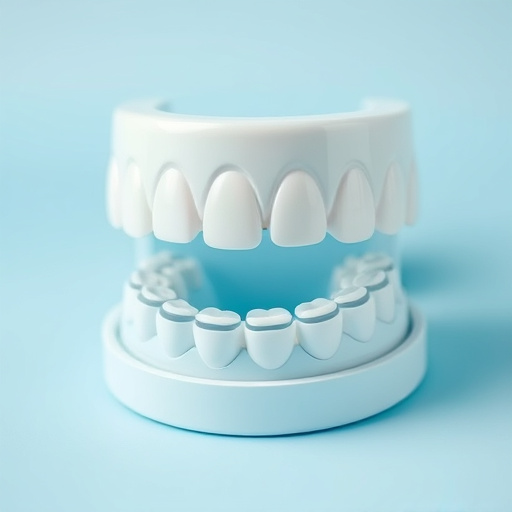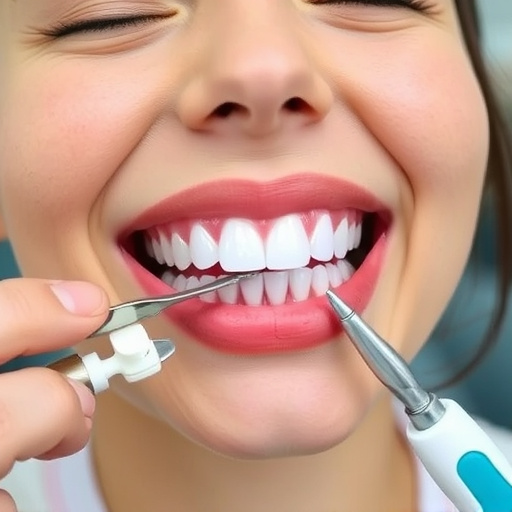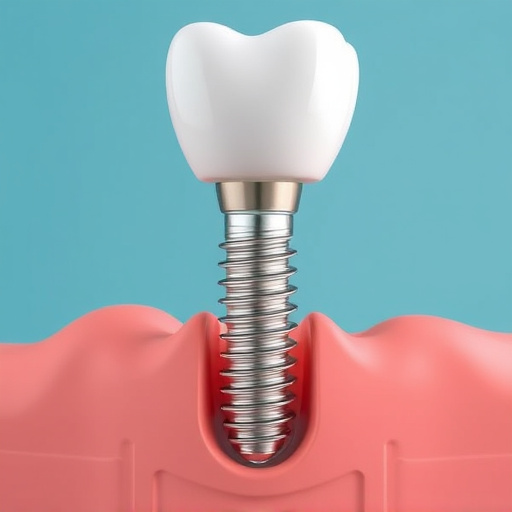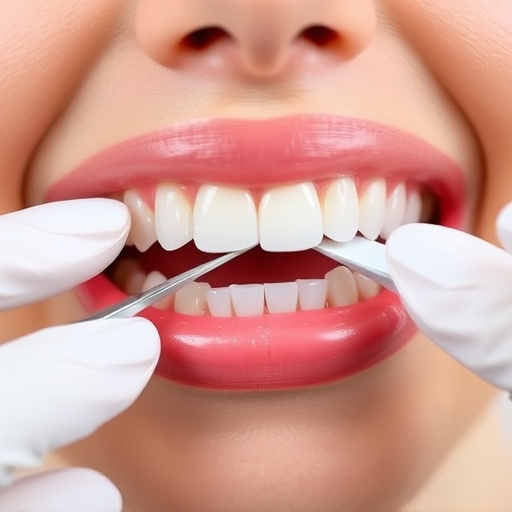Delaying teeth grinding treatment worsens jaw pain, headaches, tooth wear & damage, and sleep disruption. Unaddressed bruxism leads to cavities, misaligned bites, TMJ disorder, and systemic conditions like heart disease. Early intervention through regular dental check-ups, customized mouthguards, relaxation techniques, and timely teeth grinding treatment is crucial for optimal oral health.
Delaying teeth grinding treatment can lead to a cascade of negative effects. In the short term, it exacerbates jaw pain, headaches, and sleep disturbances. Long-term, untreated bruxism increases the risk of tooth damage, gum recession, and temporomandibular joint disorder (TMJ). This article delves into the consequences, exploring effective management strategies for teeth grinding treatment to prevent these complications and promote oral health.
- Short-Term Effects of Delaying Treatment
- Long-Term Complications and Health Risks
- Exploring Effective Management Strategies
Short-Term Effects of Delaying Treatment

Delaying teeth grinding treatment can lead to a cascade of short-term effects that often go unnoticed until the condition worsens. Initially, individuals may experience increased jaw pain, headaches, and even earaches, which are common symptoms of bruxism (teeth grinding). Over time, continued grinding can cause significant wear and tear on tooth enamel, leading to sensitivity and an elevated risk of cavities or cracks in the teeth. The impact extends beyond oral health; it can disrupt sleep patterns, contributing to fatigue and decreased productivity during the day.
Moreover, postponing treatment may result in more invasive procedures being required later. Regular visits to a general dentistry practice for check-ups and preventive dentistry measures, including teeth cleaning, become increasingly crucial as bruxism progresses. Early intervention through proper diagnosis and tailored treatment plans can mitigate these short-term effects and prevent more serious long-term damage.
Long-Term Complications and Health Risks

Unaddressed teeth grinding, or bruxism, can lead to a host of long-term complications and health risks. Prolonged grinding wears down tooth enamel, exposing dentin and making teeth more susceptible to decay, chipping, and fractures. It can also cause severe headaches, facial pain, and even hearing loss due to the strain on jaw muscles. Over time, teeth grinding can result in misaligned bites, leading to speech difficulties and increased pressure on the temporomandibular joint (TMJ), potentially causing TMJ disorder.
Moreover, chronic bruxism has been linked to systemic health issues like heart disease, anxiety disorders, and sleep apnea. Neglecting teeth grinding treatment not only compromises oral health but may also exacerbate existing medical conditions. A visit to your family dentistry office can help diagnose the severity of the issue and guide you towards appropriate treatments, which might include dental fillings for damage or preventive dentistry measures to safeguard against future wear and tear.
Exploring Effective Management Strategies

Delaying teeth grinding treatment can lead to a cascade of oral health issues and complications. Beyond persistent jaw pain, headaches, and potential damage to your teeth and gums, untreated bruxism may also impact your overall quality of life. Effective management strategies are crucial for mitigating these effects. One key approach involves regular dental check-ups where professionals can monitor the condition of your teeth and gums, providing timely interventions if necessary.
Beyond routine dental care, several other tactics can help manage teeth grinding. Customized mouthguards, often recommended by dentists, act as a physical barrier between your upper and lower teeth during sleep, reducing wear and tear caused by grinding. Relaxation techniques, such as meditation and deep breathing exercises, can also play a significant role in lessening stress levels that often trigger bruxism. In severe cases, dental procedures like dental implants or emergency dental care may become necessary to address structural damage caused by prolonged grinding.
Delaying teeth grinding treatment can lead to both immediate and long-term issues, from heightened dental erosion to potential jaw joint damage. By exploring effective management strategies promptly, individuals can mitigate these risks and significantly improve their quality of life. Timely intervention is key to preserving oral health and overall well-being, making it crucial to address teeth grinding concerns without further delay.














